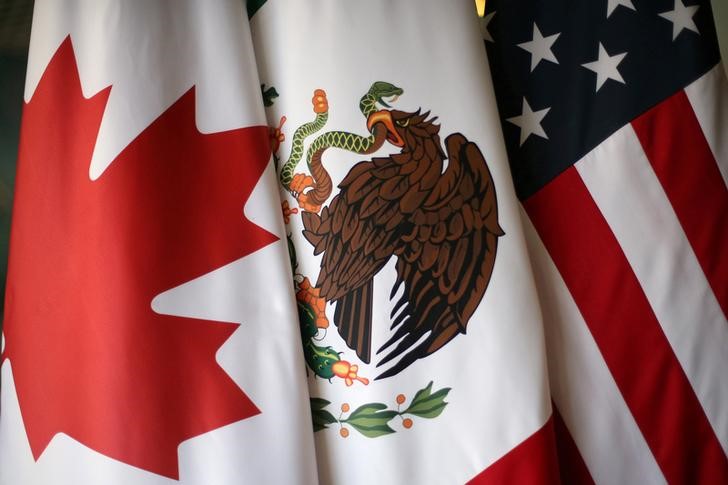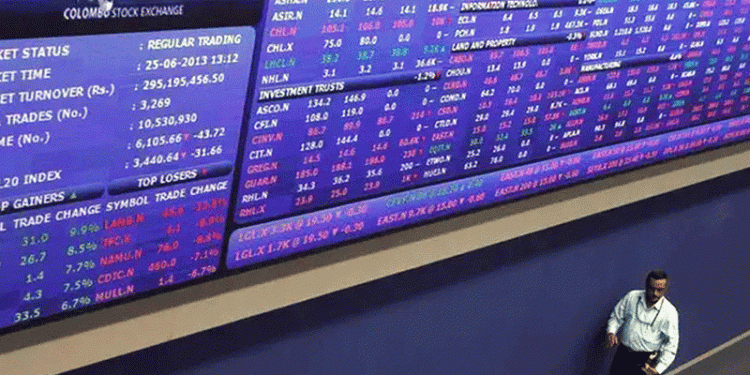 © Reuters. FILE PHOTO: Flags are pictured during the fifth round of NAFTA talks involving the United States, Mexico and Canada, in Mexico City
© Reuters. FILE PHOTO: Flags are pictured during the fifth round of NAFTA talks involving the United States, Mexico and Canada, in Mexico CityBy David Ljunggren and Anthony Esposito
MONTREAL (Reuters) – Officials opened a key round of negotiations to modernize NAFTA on Tuesday amidst optimistic signs, as U.S. President Donald Trump said the talks were going “pretty well” and Canada’s chief negotiator said he had high hopes for progress.
Trump’s remarks helped the Mexican peso
Trump, vowing to undo what he portrays as disastrous trade deals, has in recent days expressed different views of the North American Free Trade Agreement, stoking investor worries.
“NAFTA is moving along pretty well. I happen to be of the opinion that if it doesn’t work out, we’ll terminate it,” Trump said in the Oval Office as he signed orders imposing tariffs on imported solar panels and washing machines.
With time running out to address U.S. demands for major changes to NAFTA, officials met in a Montreal hotel for the sixth and penultimate round of scheduled talks, which are to conclude by the end of March to avoid a clash with Mexico’s elections.
“We have come to Montreal with a lot of new ideas, a lot of creative strategies to try to bridge some of the gaps in the negotiations,” Canadian chief negotiator Steve Verheul told reporters, adding that he had “high hopes” of progress.
Insiders say the Canadian and Mexican governments are prepared to be flexible on a U.S. demand that the amount of North American content in autos be boosted to qualify for duty-free status in NAFTA.
But Ottawa and Mexico City strongly oppose the proposal that autos produced on the continent should have 50 percent U.S. content. Differences also remain over how to address the U.S. push for changes to various dispute resolution mechanisms.
Mexico’s chief negotiator Ken Smith said he hoped progress could be made on less contentious areas such as telecommunications, anti-corruption and food safety measures.
In a note to clients, Morgan Stanley (NYSE:) said the United States had motivations to remain engaged in NAFTA.
“We believe it is unlikely that the U.S. will exit the treaty in the months to come,” the brokerage said.
Many Canadian officials, however, are downbeat about the talks amid uncertainty over whether Washington really wants to negotiate.
“If you’re unsure where the other side wants to go it is really difficult to know what would please them unless you capitulate, and that’s not going to happen,” one person briefed on Ottawa’s negotiating stance said on condition of anonymity.
With NAFTA’s future up in the air, Canada is taking steps to diversify its trade. Canada currently sends 75 percent of its goods exports to the United States.
Earlier on Tuesday, Canada and 10 other nations agreed to sign a reworked Trans-Pacific Partnership trade pact. The United States pulled out of an earlier version of that deal.
Canadian Prime Minister Justin Trudeau is currently attending the World Economic Forum meeting in Switzerland to drum up investment. Next month he will spend five days in India, which Canada sees as potentially a bigger trading partner.
Source: Investing.com




























